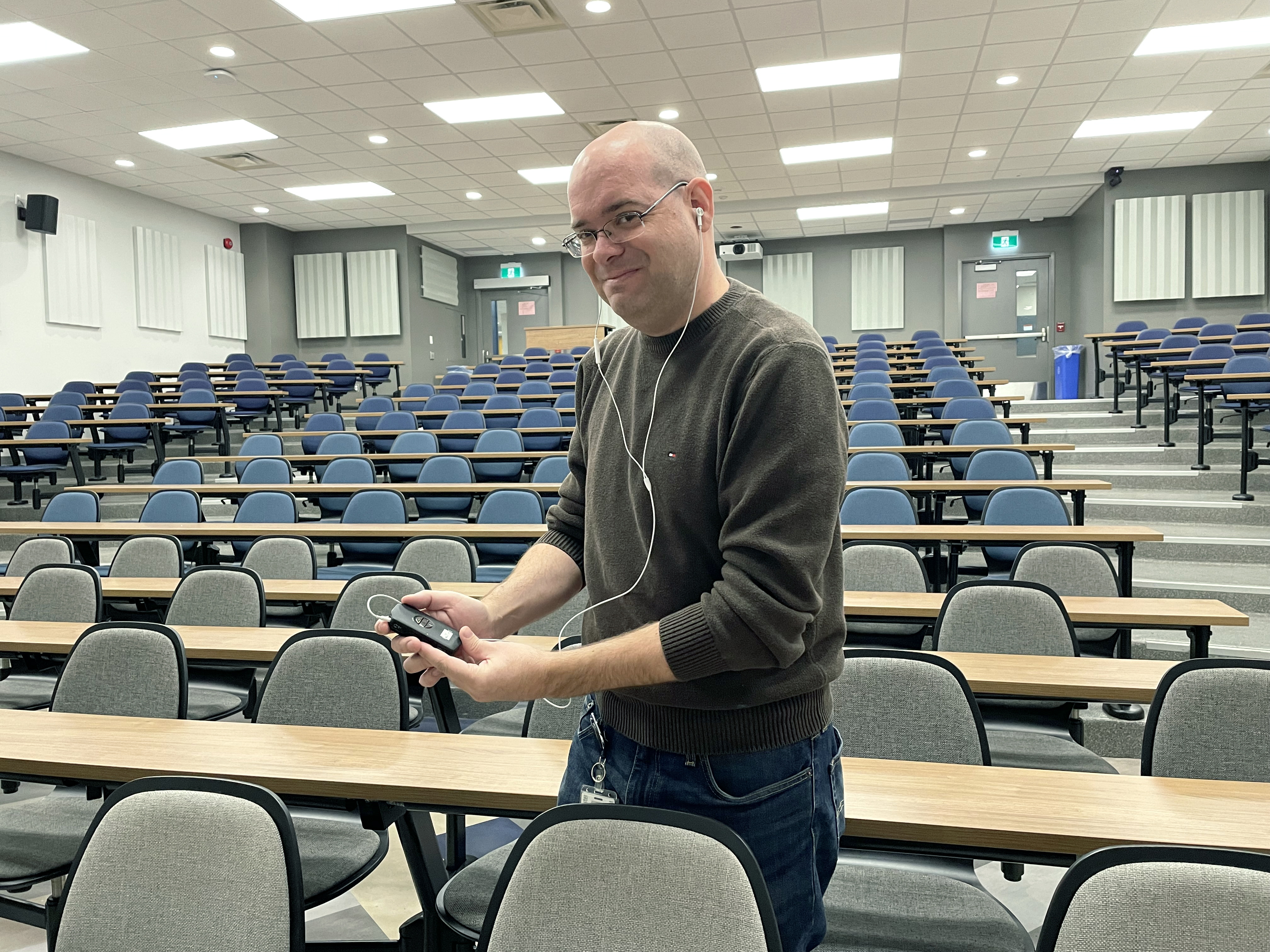
McMaster students who need help hearing their lectures in classrooms now have more options thanks to a team of McMaster University Library staff.
The university library’s Campus Classroom Technologies team has made assistive listening devices available for loan at two McMaster libraries. It is also working methodically to increase the number of classrooms where the technology is available.
Joey Ricottone, associate director of Campus Classroom Technologies and library computing, says the project is important because it creates a more accessible environment at McMaster University.
“Every person deserves a meaningful experience in our classrooms and every decision that we make about what to put in the classrooms is to help solve that problem,” he said.
An assistive listening device helps anyone who wants to focus their listening by removing background sound.
The device can be particularly helpful for individuals who have cochlear implants or hearing aids because it can work with their personal assistive devices through a telecoil neck loop. Users can tune the device to a radio frequency channel compatible with the classroom they are in and listen to class content through personal headphones or any telecoil-compatible personal device.
Looking ahead, the Campus Classroom Technologies team will continue adding the technology to more classrooms and tackling barriers related to assistive listening devices. To date, it is currently in use in 85 registrar-controlled classrooms.
Brad Leenstra, audio visual and information technology specialist for Campus Classroom Technologies, says making assistive listening devices more available will hopefully encourage increased usage in the classrooms.
“The concept of universal design around the classroom is the idea that everyone can approach a space and be accommodated, be able to enter in dialogue, learn without or with the minimal amount of barriers possible,” Leenstra said. “The more tools, the more resources we can make universally accessible, universally available, the less those things become stigmatized.”
Assistive listening device kits are available from the services desks at Mills Memorial Library and H.G. Thode Library of Science and Engineering. Library patrons can keep the kits with them for the semester, allowing them the opportunity to become more familiar with the technology.
Students can look for signage in classrooms that indicates if the technology is available and which frequency channel they should tune their device to for listening. Instructors can seamlessly continue their lecture, as the technology is integrated in the tools they already use.
Ricottone says the project was established in part because of student-reported problems flagged by Student Accessibility Services.
“I've had numerous conversations with Student Accessibility Services where students who have hearing challenges have reported that they just go without,” Ricottone said.
Angela Harrison, assistive technology consultant for Student Accessibility Services, says the new borrowing system is helpful to students looking for accommodations.
“When we design our systems and environments to be flexible and inclusive, we welcome users to come as they are and be active participants,” said Harrison. “The assistive listening devices improve listening conditions in our classrooms for people who require it, without costly personal equipment to facilitate it.”
For more information on assistive listening devices, including information on which classrooms are compatible with the technology, please visit library.mcmaster.ca/services/assistive-listening-devices.
We want to hear from you
Provide Campus Classroom Technologies with feedback on assistive listening devices.
